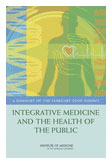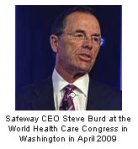In an article published this week in the New England Journal of Medicine, Harvey V. Fineberg, MD, president of the Institute of Medicine, presented a vision for resolving the pervasive and recalcitrant problems that plague what he “purposefully refers to a ‘health system’ rather than a ‘health care system.'”
But he buried his own personal advice to his colleagues at the far end of the piece. I’ve pulled it up for closer inspection. (more…)




